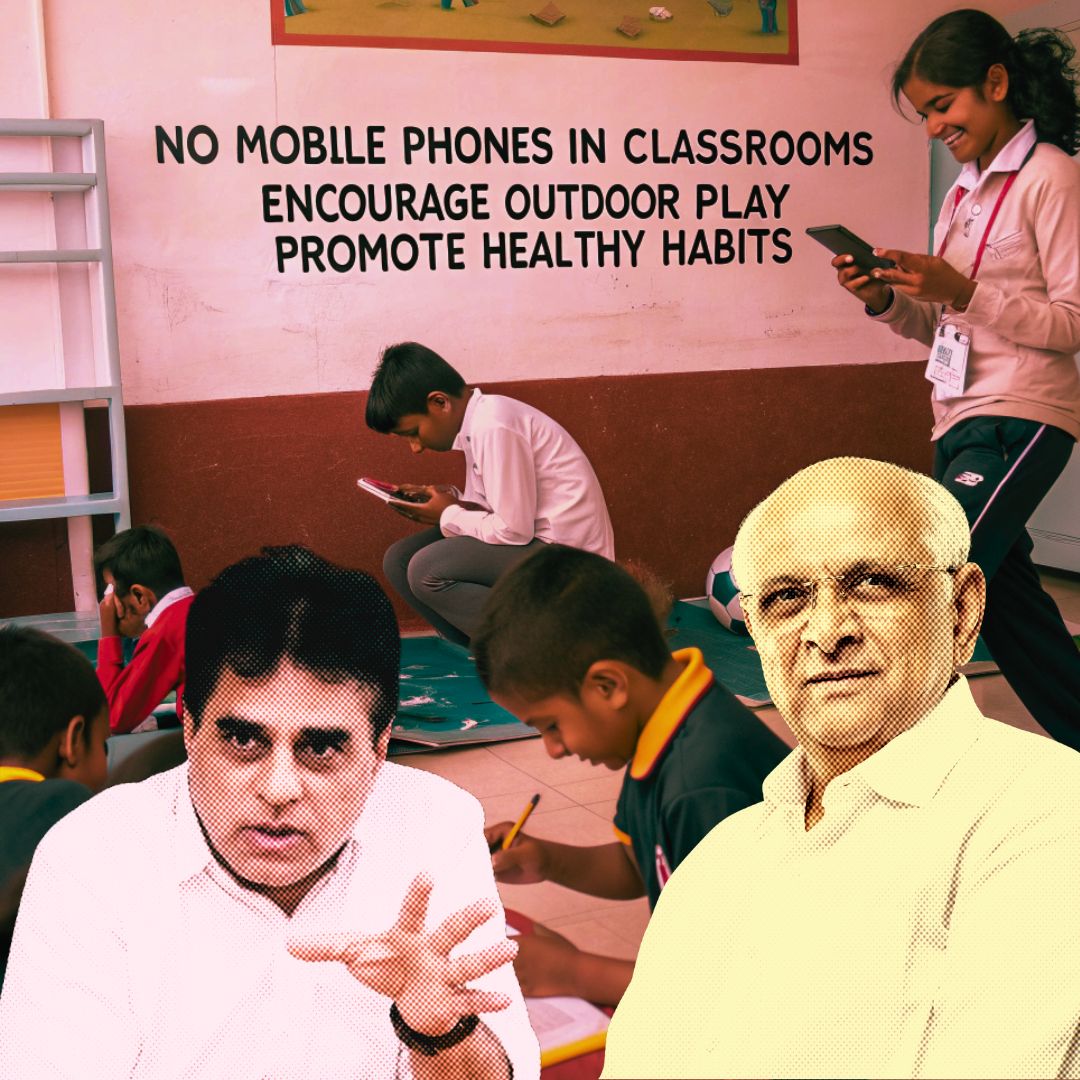The Gujarat government has introduced a significant initiative aimed at curbing smartphone usage among children by enforcing a ban on mobile phones in classrooms and discouraging social media engagement at home. Education Minister Praful Pansheriya highlighted the need for these guidelines to safeguard children’s physical and mental health, citing alarming trends in screen time-related issues. This pioneering move positions Gujarat as a leader in addressing the challenges posed by digital devices, with plans for consultations with educational experts and awareness campaigns for parents and educators.
New Guidelines for a Healthier Future
In a decisive move to address the growing concern over children’s excessive use of smartphones and social media, the Gujarat government has announced new guidelines that will reshape the educational landscape. During a recent meeting, Education Minister Praful Pansheriya outlined the key components of this initiative, which includes a strict prohibition on mobile phone usage in classrooms. Teachers will also be barred from using their devices during instructional time to ensure that students remain focused on their studies.
The initiative specifically targets primary school students, who will not be allowed to bring mobile phones to school. The guidelines include:
- Ban on Mobile Phones in Classrooms: Students are prohibited from using mobile phones during school hours.
- No Personal Devices for Primary Students: Primary school students are not permitted to bring mobile phones to school.
- Teacher Restrictions: Teachers are also banned from using mobile phones during instructional time.
- Promotion of Physical Activities: The government encourages schools to prioritize outdoor activities and sports as alternatives to screen time.
- Awareness Campaigns: The government plans to launch campaigns aimed at educating parents and teachers about the dangers of social media and excessive smartphone use.
- Parental Guidance: Parents are encouraged not to use social media in front of their children and to monitor their children’s device usage closely.
Minister Pansheriya expressed deep concern over the impact of digital devices on children’s well-being, stating, “We are disturbed over the excessive use of social media and smartphones by students affecting their physical and mental health.” He cited statistics indicating a troubling rise in mental health issues among young people, including anxiety and depression linked to prolonged screen time.
Contextual Background on Rising Concerns
This initiative comes amid increasing global scrutiny regarding the effects of digital device usage on young minds. Reports have shown that excessive screen time can lead to various mental health challenges, including sleep disturbances, reduced academic performance, and increased feelings of isolation among children. The situation has prompted several countries to take action; for instance, Australia recently introduced measures to restrict social media access for children under 16 years old.
In Gujarat, the government aims not only to reduce screen time but also to foster a supportive environment where children can thrive without the pressures of social media. Minister Pansheriya has called upon non-governmental organizations (NGOs), religious groups, and community leaders to join forces in this campaign. The initiative will include educational films highlighting the dangers of social media, which will be shown in schools to raise awareness among students about responsible online behaviour.
Additionally, experts have pointed out that while technology can offer educational benefits, its misuse can lead to adverse effects on children’s development. The Gujarat government’s proactive stance is seen as a necessary step in balancing technological engagement with healthy lifestyle choices.
The Logical Indian’s Perspective
The Gujarat government’s initiative to address children’s health in an age dominated by technology has sparked significant discussion. By promoting collaboration among parents, educators, and community leaders, the initiative aims to foster a culture of understanding regarding the challenges posed by digital devices. It encourages a conversation on how technology can be used effectively while ensuring that children’s well-being is protected.
As the debate continues, it is essential to reflect on the impact of technology on family life. How can society collectively ensure that children benefit from technology while safeguarding their mental health?












